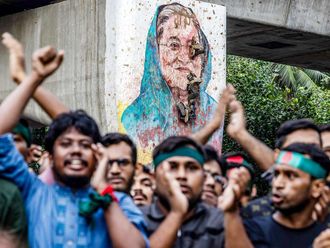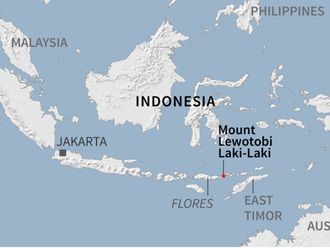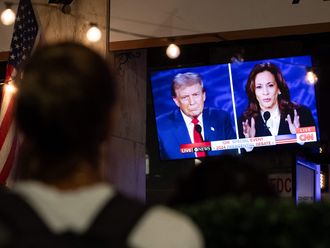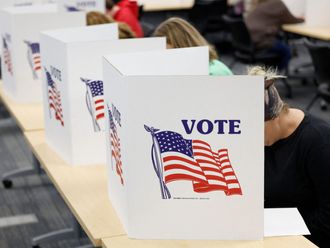Colombo: Sri Lanka's parliament on Wednesday passed a controversial amendment to the constitution allowing President Mahinda Rajapakse to run for a third term, state-run television said.
"The 18th amendment to the 1978 constitution was passed a short while ago, with 161 voting for and 17 votes against it," a presenter on the state-run Rupavahini Corporation said.
A draft bill was cleared on Tuesday by the Supreme Court, which informed parliament that the constitution could be changed by a two-thirds majority vote.
The amendment also hands him greater control over nominally independent institutions, giving him powers to appoint officials to key posts in the judiciary, police, election commission and central bank.
Rajapakse, who oversaw the defeat of the Tamil Tiger rebels in May last year after decades of conflict, already stands accused of using the immense power of his office to stifle any opposition.
"The amendment is seen as marking the end of liberal democracy in Sri Lanka," the Hong Kong-based Asian Human Rights Commission said, labelling the day "Black Wednesday."
Rajapakse's most vocal backers - his party, the state media and his three brothers, who hold key public positions - say the changes are needed to secure the post-war recovery of the country.
They also point to a requirement under the amendment for the president to appear before parliament every three months - though this nod to accountability is limited by the inability of lawmakers to challenge the head of state.
Rajapakse, who grew up in the rural south, says his urban opposition critics in the capital Colombo are simply biased because of his background.
"They fear I will secure a third term," he told newspaper editors on Monday. "But they (opposition political parties) would not have resisted so fiercely if someone with an elitist background had sought to do so."
The main opposition United National Party (UNP) and the Tamil National Alliance (TNA) are expected to vote against the changes.
"The amendments are intended to perpetuate the authoritarian rule under the facade of constitutionality," said UNP lawmaker Harsha de Silva.
The TNA, once seen as a proxy of the Tamil Tiger rebels, said the amendments encouraged "unhealthy political influence" and jeopardised good governance and the rule of law.
The move has also angered lawyers and some religious groups, who have criticised the lack of public scrutiny of the bill.
Parliament is to debate and vote on the changes in a single day.
"It will inevitably lead to a further, dangerous politicisation of our national institutions and a speedier, destructive erosion of our already fragile democratic culture," the head of the Sri Lankan Anglican church, Bishop Duleep de Chickera, said in a statement on Tuesday.
The Ceylon Federation of Labour, an independent labour union, has also criticised the legislation.
"It is time that all democratic forces wake up to the danger the country faces. President Mahinda Rajapakse is already king," it said on Tuesday.
A self-confessed hawk, the president is under pressure to submit to an international war crimes inquiry into the latter stages of the island's civil war, when thousands of civilians are believed to have died.












